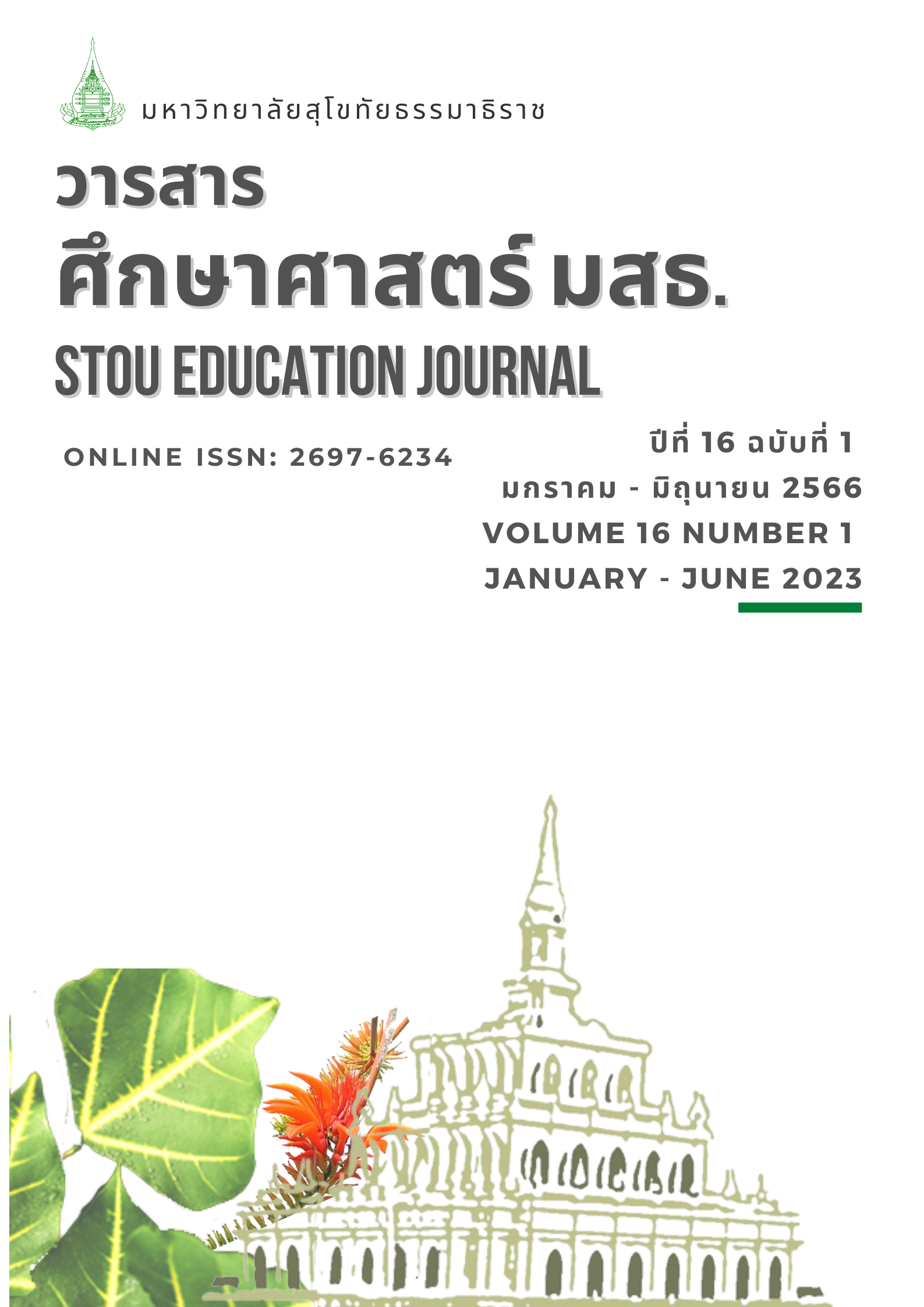มโนทัศน์ที่คลาดเคลื่อนและแนวทางที่ถูกต้องในการเขียนรายงานการวิจัย
Main Article Content
บทคัดย่อ
การเขียนรายงานการวิจัยของนักวิจัยส่วนหนึ่งยังไม่มีคุณภาพเนื่องจากมีมโนทัศน์ที่คลาดเคลื่อน เริ่มตั้งแต่ การกำหนดชื่อเรื่องโดยไม่ระบุตัวแปรให้ชัดเจนและไม่เป็นตัวแปรใหม่ที่น่าศึกษา ความเป็นมาและความสำคัญของปัญหาวิจัยไม่อธิบายความสำคัญและเหตุผลที่ต้องทำวิจัยและขาดหลักฐานข้อมูลสนับสนุน การเขียนคำถามวิจัยและวัตถุประสงค์ของการวิจัยไม่ชัดเจน ไม่สอดคล้องกันและเขียนคล้ายกับประโยชน์ของการวิจัย ขอบเขตของการวิจัยไม่ครอบคลุมตัวแปรที่ศึกษาและกลุ่มเป้าหมายการวิจัย นิยามศัพท์เฉพาะไม่นิยามเชิงปฏิบัติการและนิยามไม่ครบถ้วน ประโยชน์ที่ได้รับจากการวิจัยระบุเฉพาะผลผลิตของการวิจัยโดยไม่ระบุผลลัพธ์ของการวิจัย วรรณกรรมที่เกี่ยวข้อง นำเสนอไม่เกี่ยวข้องกับตัวแปรที่ศึกษาและขาดการสังเคราะห์เนื้อหา กรอบแนวคิดในการวิจัยไม่สะท้อนถึงความสัมพันธ์ระหว่างตัวแปรที่ศึกษา วิธีดำเนินการวิจัยนำเสนอไม่เป็นระบบและไม่ครอบคลุมการออกแบบการวิจัย การนำเสนอผลการวิเคราะห์ข้อมูลไม่ครบถ้วนตามวัตถุประสงค์ของการวิจัยและแปลผลการวิเคราะห์ข้อมูลไม่ถูกต้อง การสรุปผลการวิจัยไม่กระชับและไม่สอดคล้องกับวัตถุประสงค์การวิจัย การอภิปรายผลขาดการแสดงเหตุผลโดยใช้แนวคิดทฤษฎีหรือผลงานวิจัยมาสนับสนุนและไม่อภิปรายผลในเชิงคุณค่าของผลการวิจัย ข้อเสนอแนะไม่อิงบนฐานผลการวิจัยและไม่ชัดเจนว่าควรให้ใครนำผลการวิจัยไปใช้อย่างไร การเขียนรายการอ้างอิงไม่ถูกต้องตามหลักเกณฑ์และไม่ครบถ้วนตามที่อ้างอิงในเนื้อหา ภาคผนวกขาดการพิจารณาเสนอเนื้อหาที่จำเป็น จากความคลาดเคลื่อนดังกล่าว นักวิจัยจึงควรพัฒนาตนเองเพื่อให้มีมโนทัศน์ที่ถูกต้องซึ่งจะช่วยให้การเขียนรายงานการวิจัยมีคุณภาพได้ตามเกณฑ์
การประเมิน
Article Details
เอกสารอ้างอิง
นงลักษณ์ วิรัชชัย และ สุวิมล ว่องวาณิช. (2555). หลักสูตรมโนทัศน์ที่คลาดเคลื่อนในการวิจัยการศึกษา ใน เอกสารโครงการการพัฒนาหลักสูตรการฝึกอบรมนักวิจัยการศึกษาเพื่อเพิ่มศักยภาพด้านการวิจัย. คณะกรรมสภาวิจัยแห่งชาติ สาขาการศึกษา. สำนักงานคณะกรรมการวิจัยแห่งชาติ.
พิชิต ฤทธิ์จรูญ. (2564). เทคนิคการวิจัยในชั้นเรียน. จตุพร ดีไซด์.
พิชิต ฤทธิ์จรูญ. (2566). เทคนิคการเขียนรายงานการวิจัยที่มีคุณภาพ. เพชรเกษมการพิมพ์.
ศุภกิจ วงศ์วิวัฒนนุกิจ. (2555). พจนานุกรมศัพท์การวิจัยและสถิติ (พิมพ์ครั้งที่ 3). สำนักพิมพ์แห่งจุฬาลงกรณ์มหาวิทยาลัย.
สิทธิ์ ธีรสรณ์. (2555). เคล็ดลับการเขียนรายงานวิจัยและวิทยานิพนธ์. สำนักพิมพ์แห่งจุฬาลงกรณ์มหาวิทยาลัย.
อิทธิพัทธ์ สุวทันพรกูล. (2561). การวิจัยทางการศึกษา: แนวคิดและการประยุกต์ใช้. โรงพิมพ์แห่งจุฬาลงกรณ์มหาวิทยาลัย.
องอาจ นัยพัฒน์. (2549). วิธีวิทยาการวิจัยเชิงปริมาณและเชิงคุณภาพทางพฤติกรรฒศาสตร์และสังคมศาสตร์ (พิมพ์ครั้งที่ 2). สามลดา.
Johnson, B., & Christensen, L. (2017). Educational research: Quantitative, qualitative, and mixed approaches (6th ed.). SAGE.
Gay, L. R., Mills, G. E., & Airasian, P. W. (2011). Educational research: Competencies for analysis and applications (10th ed.). Pearson.
Ioanna, P., Needham, D., & Male, T. (editor), (2016). Doing Research in Education: Theory and practice. SAGE.


